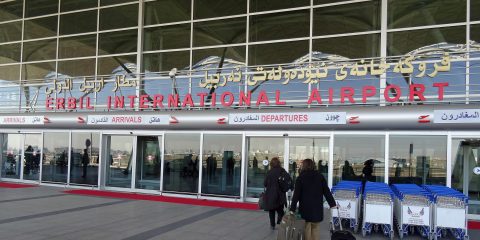It’s Too Early To Pop Champagne In Baghdad: The Micro-Politics Of Territorial Control In Iraq
“What government?” scoffed Abu Ali, a local Turkmen force commander affiliated with the League of the Righteous, a powerful Iranian-backed Shi’a militia, when we asked whether he took orders from Iraqi forces or the central government. He lumped all Sunni Arabs in with the extremists who had abused his Shi’a sub-community in Tuz Khurmatu, south of […]Erica Gaston and Andras Derzsi-Horvath write for War on the Rocks:
“What government?” scoffed Abu Ali, a local Turkmen force commander affiliated with the League of the Righteous, a powerful Iranian-backed Shi’a militia, when we asked whether he took orders from Iraqi forces or the central government. He lumped all Sunni Arabs in with the extremists who had abused his Shi’a sub-community in Tuz Khurmatu, south of Kirkuk, and disparaged the Kurds as “backstabbers” and “cheats” who had done too little to stop the extremists and then manipulated the fight against ISIL to seize control. He saw few solutions other than to purge this historically multi-ethnic community of all except Shi’a Turkmen, and while he might be restrained by the head of the League of the Righteous or other senior commanders of the Popular Mobilization Forces (PMF), there was nothing the Iraqi government could do to stop him.
These are the types of problems Baghdad assumed when Iraqi forces and their allies flipped Kirkuk, its nearby oil fields, and other parts of the Disputed Territories from Kurdish to Iraqi control last week. Coming on the heels of the retaking of Mosul, Iraqi forces’ gains this past week may seem like an unequivocal positive for the state’s efforts to reassert territorial control and state authority. But our recent research mapping sub-state forces in Iraq suggests that many of the territories the government reassumed control of are diverse, multi-ethnic, and multi-sectarian communities pump-primed for violence – and Baghdad has little leverage to stop it.





